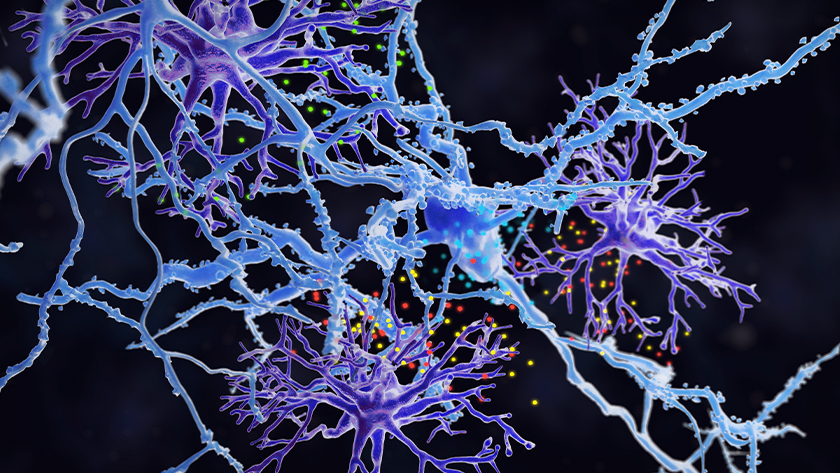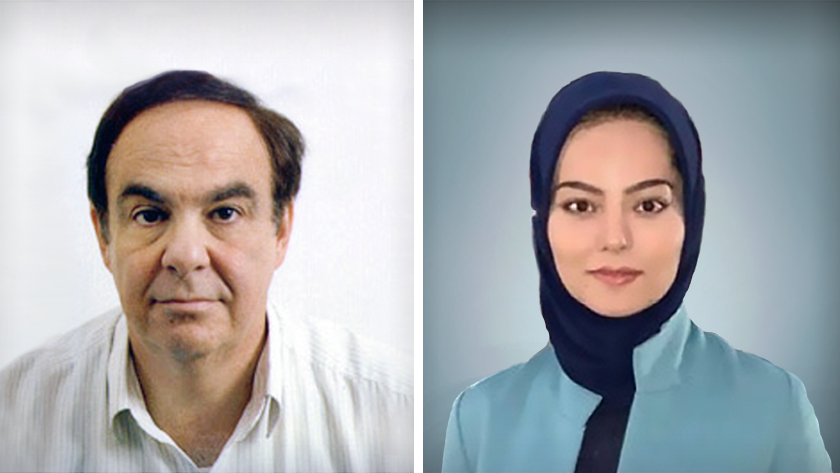
Researchers at the Krembil Brain Institute have shown that stimulating a specialized type of brain cell—known as astrocytes—can correct chemical imbalances associated with disorders such as migraine and epilepsy.
When the brain is active, concentrations of charged molecules called ions change, allowing for messages to be transmitted. A particular ion—potassium—accumulates outside neurons in high concentrations after brain activity. Astrocytes, a type of support cell that helps to regulate signal transmission, normally help to take up excess potassium.
This cleanup process is important to maintain the delicate equilibrium of chemicals in the brain and maintain normal brain activity. However, when astrocytes malfunction, potassium builds up in the extracellular space.
“Abnormally high potassium levels are associated with several conditions, such as migraine, epilepsy and stroke,” explains Dr. Peter Carlen, a Senior Scientist at the Krembil Brain Institute and senior author of the study. “We explored whether we could stimulate these cells to increase the absorption of potassium and prevent the adverse effects of abnormal brain activity.”
In an experimental model, the researchers used genetic approaches to introduce a light-sensitive protein into astrocytes. This protein enabled the team to selectively stimulate astrocytes by applying light. When stimulated, the cells became hyperpolarized—meaning that the charge cell became even more negative than normal (i.e., they exhibited a more negative resting potential). “A negative resting potential is key to astrocyte function. The negative charge enables the cell to attract potassium ions, which are positively charged,” says Dr. Carlen.
The researchers then looked at how stimulating astrocytes—while either activating or not activating neurons—affected potassium concentrations. They found that, regardless of whether neurons were active or resting, stimulating astrocytes increased their ability to take up potassium from the extracellular space.
“We found that there was a limit to how much we could drive astrocytes to take up potassium—stronger stimulation did not necessarily translate into greater absorption,” explains Azin Ebrahim Amini, first author of this study. “This finding suggests that other regulatory mechanisms might be involved in normalizing ion concentrations following brain activity.”
These findings provide an important insight: stimulating astrocytes can help regulate ion concentrations and promote healthy brain activity. The results also point to astrocytes as a potential therapeutic target for patients suffering from debilitating conditions associated with abnormally high potassium levels—including neurotrauma, migraine, strokes and seizures.
This work was supported by the Canadian Institutes of Health Research and the UHN Foundation. B Stefanovic holds a Tier 1 Canada Research Chair in Neuroimaging and is a professor at the department of Medical Biophysics at the University of Toronto.
EbrahimAmini A, Mylvaganam S, Bazzigaluppi P, Khazaei M, Velumian A, Stefanovic B, Carlen PL. In Vivo Neocortical [K]o Modulation by Targeted Stimulation of Astrocytes. Int J Mol Sci. 2021 Aug 12. doi: 10.3390/ijms22168658.

Dr. Peter Carlen (left), Senior Scientist at the Krembil Brain Institute, and Azin Ebrahim Amini (right), PhD student at the department of Biomedical Engineering at the University of Toronto.




